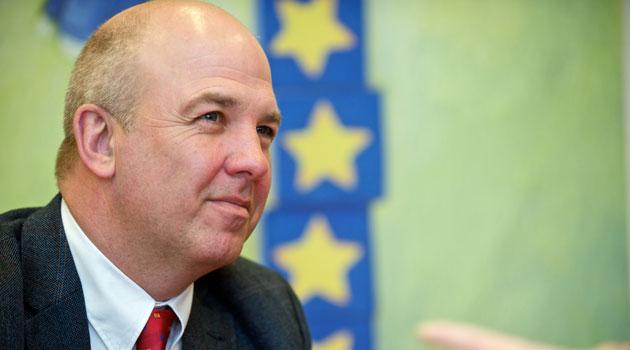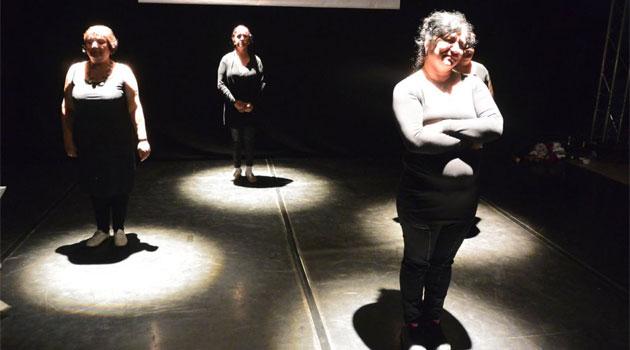Europe's Human Rights Commissioner raises lack of redress for involuntary sterilization with Czech Govt again

The Council of Europe’s Commissioner for Human Rights, Nils Muižnieks, has reiterated to the Czech Prime Minister that an ex gratia compensation procedure for survivors of involuntary sterilization is the best way to redress them. In his letter, the Commissioner mentions that many other Council of Europe member states – namely, Austria, Germany, Norway, Sweden and Switzerland – have assumed responsibility for sterilization policies that have resulted in human rights violations in the past and have established special remedies for those who have survived such treatment.
Muižnieks believes the existing three-year statute of limitations in such cases “works against victims, as it is only years later that victims appreciate the nature and consequences of the damage they have suffered” and noted that yet another complaint involving the sterilization of a woman without her informed consent is now pending before the European Court of Human Rights and was communicated to the Czech authorities in July 2015. He also asked the Prime Minister to explain how proposed reforms to the provision of free legal aid would affect those who seek compensation through the courts.
Despite the vast majority of these cases being statute-barred, the response from Prime Minister Sobotka states that the Government still believes individual lawsuits are the best way for those who have survived these harms to be awarded damages. He describes that the proposed legislation on the state-funded provision of legal aid will expand the kinds of proceedings for which legal assistance can be provided free of charge “or at a reasonable price” to include both administrative proceedings and Constitutional Court proceedings, and asserts that “if victims of unlawful sterilisation qualify due to their material situation for the free or partially covered legal aid, they will be able to obtain it.”
Elena Gorolová, a survivor of these violations who is helping other survivors of involuntary sterilizations seek redress in collaboration with the Czech Helsinki Committee, responded to the Prime Minister’s assessment of the situation as follows: “He’s just insisting on what he said before, but for most of us, suing is no use once those three years have passed. We’ve already tried everything we can. I don’t know why he is choosing to face this issue in this way. It’s sad.”
The Prime Minister’s reply to the Commisioner for Human Rights completely ignores the criticism of the planned improvements to the state-sponsored free legal aid system made by NGOs that provide free legal aid to a wide range of clients, from asylum-seekers to persons seeking to enforce child support orders. The NGOs primarily object to a restriction to be introduced – one that the Prime Minister failed to mention in his response to the Council of Europe – by which only licensed attorneys will be able to draw on the state funding for providing legal aid.
Addressing the round table convened yesterday in Prague by the Czech Human Rights Minister, the Public Defender of Rights, and the European Commission on Racism and Intolerance, human rights lawyer Klára Kalibová of the In IUSTITIA organization emphasized to those present that the proposed free legal aid bill would provide state funding for legal advice only, not for representation in court. She also objected to the funding flowing only to attorneys when, as other NGOs have pointed out, there is a great need for legal work to be provided beyond the provision of mere advice and many NGOs or trade unions have lawyers available to perform such work who may not yet have become attorneys.
Gwendolyn Albert, who is also assisting the survivors of involuntary sterilizations in collaboration with the Czech Helsinki Committee, had this to say about the Prime Minister’s response: “It is unfortunate that whoever is giving the Prime Minister his legal advice is telling him that the state-funded system for free legal aid in this country is the solution to helping the hundreds of victims whose claims have expired and who are deserving of special treatment because of the seriousness of their claims. They should not just be told to get in line with everybody else who can’t afford legal representation in this country – the treatment they have suffered is extremely serious and sui generis, not comparable to any other kind of malpractice. The proposed improvements to the state funding of legal aid will not cover the costs of their bringing lawsuits, just the costs of some attorney taking the time to explain to them that their lawsuits probably have no chance of success, as has been reiterated to them by many legal experts, already free of charge, for the last 10 years. That advice they have already received, they don’t need to hear it again. Special ex gratia compensation schemes exist precisely to address cases that are of enormous gravity where the courts and the law cannot meet the need for justice and where the state understands that providing redress is imperative because of its social significance. According to the communications we have received from the legal experts involved with the Government’s Working Group on this issue, which currently advises the Roma Council, the Ministry of Health still sees no legal difference between a doctor operating on the wrong arm or leg and the irreparable, lifelong anguish that has been caused to these women. It is imperative that the Human Rights Minister educate the rest of the Government as to why arbitrarily interfering with women’s autonomy in this way and depriving them of control over their own decisions about their bodies and their lives is a gross human rights violation and one for which they must be redressed immediately through a special process.”
The most recent communication from Muižnieks also raises the issues of segregation of Romani children in the schools; the territorial segregation of Romani people with respect to housing; the hate speech, intolerance, racsim and xenophobia that are so manifest in the Czech Republic; the memorial for the former concentration camp for Romani victims of the Holocaust at Lety by Pisek; and protection of the human rights of persons living with disabilities. In his response to all of these issues, Sobotka claims that “the protection of fundamental rights of vulnerable groups, including Roma and persons with disabilities, is one of the priorities of the Czech Government’s human rights agenda and will belong to the topics on which the forthcoming Chairmanship of the Czech Republic at the Council of Europe will focus.”
